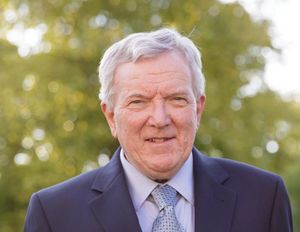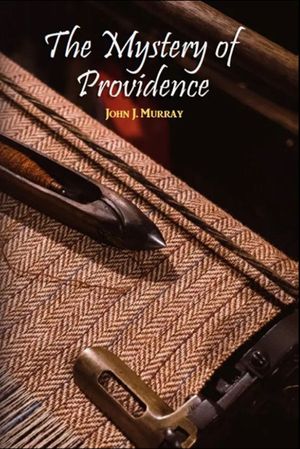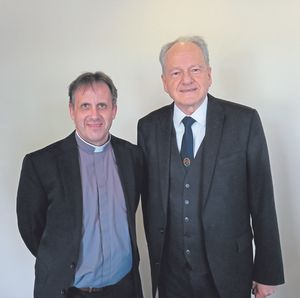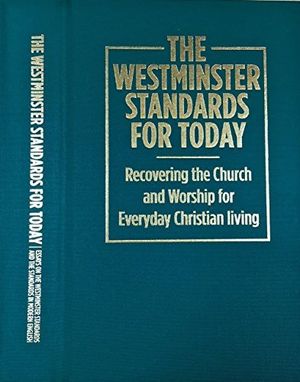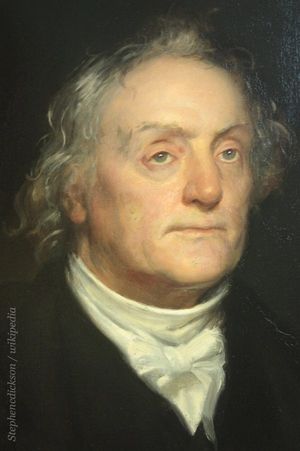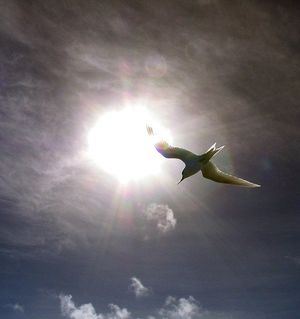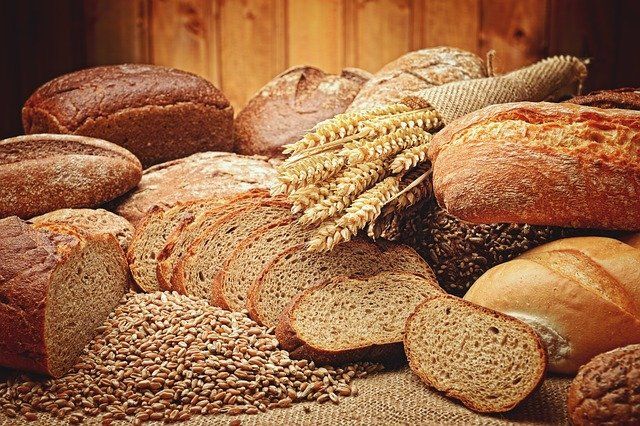
There are some parts of the world where there is great poverty; people are barely on the breadline and often below it. We are very privileged in this country. There is abundance of food. The supermarket shelves are laden with foods for every culinary taste.
Restaurants abound, offering the most exotic menus. We seem to lack nothing. Perhaps we can understand why people in Third World countries pray for daily bread, but it hardly seems relevant to ourselves. Indeed, considerable shelf-space is taken up with cat and dog foods, the likes of which are beyond the imaginings of the world’s deprived areas!
Need we really pray for our daily bread, as Jesus teaches: ‘Give us this day our daily bread’ (Matthew 6:11; Luke 11:3)? The answer is, of course, that we must indeed offer such a prayer. This is a matter of humility on our part and of thanksgiving to our Maker.
An important petition
The petition is very important in that (a) through it we affirm our dependence upon the Lord; and (b) by it we learn to recognise Christianity as a world-view.
Christian faith is not to be thought of as simply a ‘religious’ element tagged on to our lives like some appendage. Rather, it should be seen as a world-view covering all of life. By it we learn how our Creator intends us to live.
Paul told the Athenians on Mars Hill that ‘in [God] we live and move and have our being’ (Acts 17:28). Mankind ought always to live with a constant sense of dependence upon the Lord.
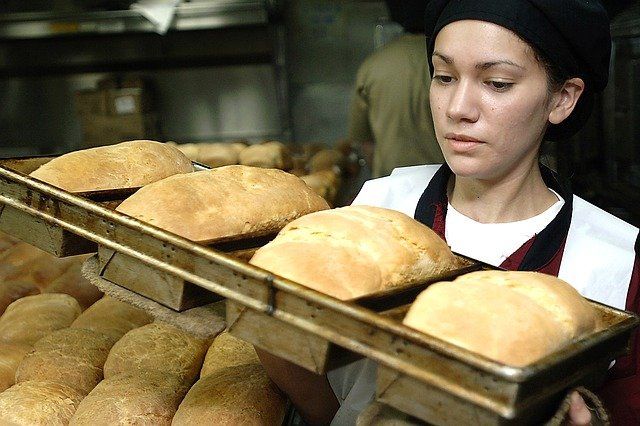
And this petition expresses and confirms that priority. As Dr Lloyd-Jones put it: ‘We are absolutely in the hand of God, and the supreme folly of the twentieth century is the folly of thinking that because we have acquired a certain amount of knowledge of the laws of God, we are independent of him. We cannot live a day without him. Nothing would continue if it were not sustained and kept going by God’.
In this petition, then, we acknowledge God’s sovereignty over us, and our need of him and his provision for our physical lives under the sun. We are reminded, too, by asking such a thing of the Lord – our daily bread – that he cares for and sustains our lives. He is interested in these ‘ordinary’ aspects of our existence.
As for ourselves, we are to heed the exhortation: ‘whether you eat or drink, or whatever you do, do all to the glory of God’ (1 Corinthians 10:31).
We deserve nothing
In the UK we live in a ‘welfare state’. Several generations have known nothing else. On the face of it, that has considerable benefits.
On the other hand, there is also a cost. It tends to produce presumption. People come to think that the provision of what they need is a responsibility of the State, and a natural ‘right’. People have high expectations about their standard of living.
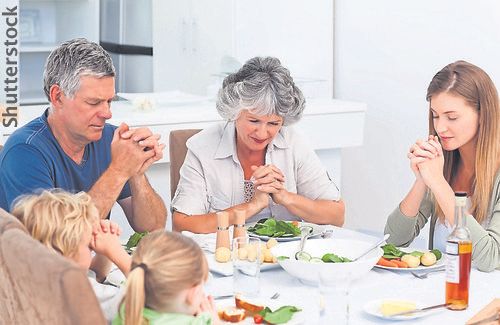
The Christian attitude, however, following this fourth petition, should be: ‘I deserve nothing; all is of the Lord’s grace. I am bankrupt before God, however much I may have of this world’s goods, and I do not deserve my daily bread’.
The fact is that we should take nothing for granted. God could withhold the rain and hide the sun’s light and warmth from us, if he so willed. However ‘well off’ people are, they must constantly pray: ‘Give us this day our daily bread’.
Otherwise we will incur his just displeasure, as we have been finding recently with the crises in farming through BSE and ‘foot and mouth’ and the unusual flooding. All these things may be seen as judgements from the Lord.
Notice that this is a request to be made daily: ‘this day … daily bread’. The implication is that this is something we are to bring to the Lord every day without fail. It is asking, furthermore, for sufficiency and not superabundance!
We have to appreciate that we are ‘unworthy of the least of the mercies … you have shown your servant’ (Genesis 32:10). We deserve nothing. That is an important lesson in this petition.
Complete dependence
When you think of it, there can be no clearer statement of our dependence upon the Lord than this petition sincerely uttered. It is significant in this connection that Solomon, a rich man, prayed to the Lord: ‘Give me neither poverty nor riches – feed me with the food you prescribe for me; lest I be full and deny you, and say, “Who is the Lord?” Or lest I be poor and steal, and profane the name of my God’ (Proverbs 30:8-9).
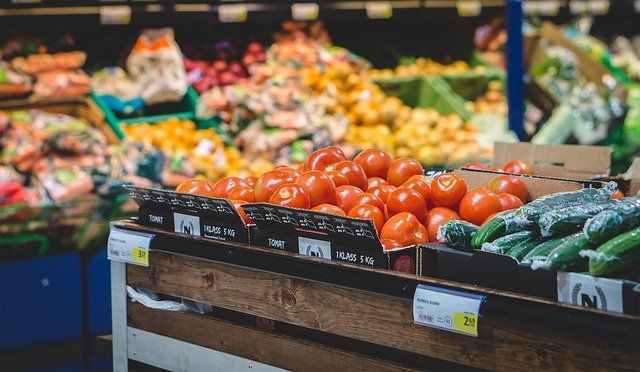
No doubt, in the West, we rely on the supermarket and the high-street shops. Everything is to hand: tinned, processed, microwavable and instant! This can be extended to cover clothes and other material comforts.
There is nothing new in all this. Paul warns the Corinthian church: ‘Who makes you differ from another? And what do you have that you did not receive? Now if you did indeed receive it, why do you glory as if you had not received it?’ (1 Corinthians 4:7).
What good things have we received that are not ultimately gifts from God? He gives us the seasons, the sun and the rain, the fruit-bearing plants and seeds. The least we can do is ask him for our daily bread and thank him daily for its provision.
We must exercise a complete dependence on the Lord. This is another important lesson in this petition.
A thankful spirit
This is implicit in this prayer. We are encouraged to go humbly upon our knees before our Maker and ask him for our food. Correspondingly, we will have a spirit of thankfulness for what we do receive, knowing it comes from him.
This encourages people to be contented. It is interesting that the more acquisitive our society has become, the more people lack contentment, and the more covetous they seem to be.
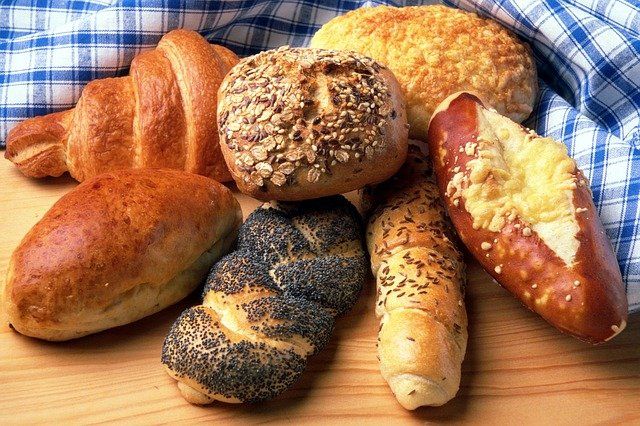
Contentment is an elusive quality in modern society. No doubt this is because God is denied and people do not bow their heads habitually before and after meals in thanks to him for his goodness.
People want the crumbs from his hand, as it were, but do not want his hand. We must have a spirit of thankfulness to the Lord for all his provision. This, too, is an important lesson in this petition.
Bread of life
There is another aspect to this prayer. In the incident of the feeding of the five thousand, as recorded in John 6, the people are fed by a miraculous provision.
Unfortunately, their interest was quite superficial. They sought him subsequently because he had fed them. They did not understand the message concerning his power (see John 6:26 and Mark 6:52).
People are happy as long as they are fed. But there is more to life. Christ goes on to say: ‘do not labour for the food which perishes, but for the food which endures to everlasting life, which the Son of man will give you, because God the Father has set his seal on him’ (v. 27).
This points to the fact that we have a far deeper need than for mere outward ‘bread’. Christ describes himself as the bread of life which came down from heaven.
Eternal rest
He is the ‘true bread’ (John 6:32), the ‘bread of life’ (vv. 35, 41, 48) and the ‘living bread’ (v.51). Sinners are invited to ‘eat his flesh and drink his blood’ (vv. 53-54). That is an invitation to believe on him and to receive the eternal life he offers (vv. 55-58).
Christ is the ‘bread’ men and women need if they are to enjoy a heavenly and eternal rest hereafter. This teaching provides an all-important perspective on life. This world is not all – it is the heavenly bread that counts, having Christ in your life by faith. That, too, is ‘bread’ people should seek daily.
In this petition we learn that ‘every good gift and every perfect gift is from above, and comes down from the Father of lights, with whom there is no variation or shadow of turning’ (James 1:17). That includes our ‘daily bread’.
We live in God’s world. In and of ourselves, we deserve nothing but condemnation, but we have received grace and mercy in Christ.
Our life comes from him and it therefore befits us to pray, ‘give us this day our daily bread’, and live with humble thankfulness, in utter dependence on the Lord our provider.



